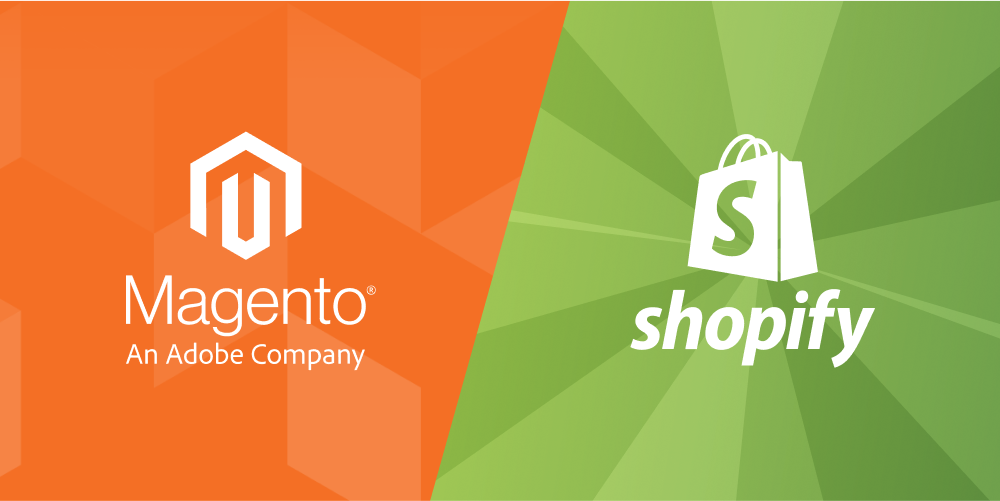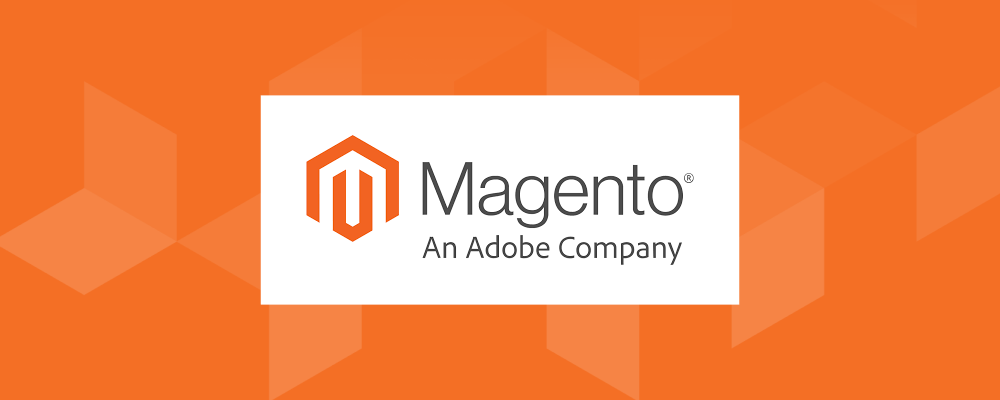Ecommerce Development, zBlog
Magento vs Shopify in 2023: A Comprehensive Guide to Choosing the Best E-Commerce Platform
atif | Updated: August 28, 2023

The e-commerce market achieved a significant milestone in 2022, attaining a total worth of US$ 16.6 trillion. Projections for the future are even more ambitious, with an anticipated surge to US$ 70.9 trillion by 2028. With online shopping continuing to gain momentum, having the right e-commerce platform is critical for business success.
In this comprehensive guide, we dive deep into a comparison of two leading solutions – Magento and Shopify. We analyze the key differences, pros and cons, pricing, and ideal use cases to help you determine the best choice for your business needs and goals in 2023 and beyond.
Introduction: The Rise of E-Commerce Platforms
An e-commerce platform serves as the foundation for your online store, providing the tools and functionality to build, manage, and optimize your digital presence. With an average conversion rate of 2.35% and a $2,500 customer lifetime value (Forbes), having a platform that converts visitors into loyal, high-value customers is essential.
When assessing e-commerce platforms, key factors to evaluate include:
- Customization options
- Built-in features
- Scalability
- Ease of use
- SEO capabilities
- App ecosystem
- Pricing and transaction fees
- Technical support
Understanding these dynamics for solutions like Magento vs Shopify will enable you to match the right platform to your business needs and stage of growth.
Magento: A Highly Flexible Enterprise Solution

First released in 2008, Magento is a feature-rich, open-source e-commerce platform built on PHP. It comes in two main editions – the free Magento Open Source (formerly Magento Community Edition) and the paid Magento Commerce (formerly Magento Enterprise Edition).
Key Strengths of Magento
- Unparalleled Customization and Extensibility
With its open-source architecture and thousands of themes, extensions, and integrations, Magento offers seemingly endless customization capabilities for those with development skills. You can fine-tune every aspect of the front and back end to build a truly unique, tailored storefront. - Robust Enterprise Features and Scalability
Magento Commerce provides a wealth of advanced functionality for B2B and large retailers including built-in PCI compliance, automated tax calculation, and handling hundreds of thousands of SKUs and orders. - Powerful SEO, Marketing, and Promotional Tools
Magento gives you precise control over SEO elements like meta tags, URLs, and sitemaps along with native capabilities like related product upsells, email marketing, and coupon creation for maximizing conversions. - Vibrant Ecosystem of Technology Partners
Thousands of solution partners extend Magento’s functionality via connectors, extensions, and services. This allows you to augment capabilities on-demand instead of custom coding.
When is Magento the Right Fit?
Magento is ideal for large enterprises and brands selling:
- A high volume of products online
- Across multiple websites, geographies, and languages
- Through both B2C and B2B channels
- Requiring complex fulfillment and inventory management
It’s also a fit for companies with big growth goals seeking ultimate front-end flexibility via developer customization.
According to Gartner, over 50% of the Fortune 500 use Magento, including big brands like Nike, Ford, and Lenovo. The platform can handle incredibly high order volumes and traffic spikes.
Shopify: Optimized for Simplicity and Ease of Use

First launched in 2006, Shopify powers over 1 million businesses with its SaaS e-commerce platform geared towards small and mid-sized retailers.
Key Advantages of Shopify
- Extremely User-Friendly and Intuitive
Shopify enables anyone to launch an e-commerce store quickly through an easy-to-use drag-and-drop interface and templated design. No coding skills are required. - Everything You Need to Start Selling Fast
In one seamless platform, Shopify offers integrated payment processing, shopping cart, SEO tools, shipping calculator, and more – allowing you to get up and running in days. - Robust App Ecosystem for Added Functionality
The Shopify App Store gives you access to thousands of apps covering everything from accounting automation to social media marketing, enhancing capabilities on-demand. - Worry-Free Security and Hosting
As a fully SaaS solution, Shopify handles the hosting, security, maintenance, and updates, allowing you to focus solely on your business.
When to Choose Shopify
With its simplicity and breadth of features, Shopify is a powerful option for:
- Entrepreneurs and small retailers
- Businesses selling a smaller catalog of products
- Companies that want a fast time-to-market and minimal management overhead
According to Shopify, over 70% of their merchants have under 100 employees. Big brands like GE, Gibson Guitar, and Suzuki use Shopify for specific brand stores or smaller divisions.
Side-by-Side Comparison
Now that we’ve highlighted the key strengths of both Magento and Shopify, let’s compare them across some major factors:
| Factor | Magento | Shopify |
|---|---|---|
| Customization | Highly customizable code base | User-friendly custom themes |
| Scalability | Enterprise-level scalability | Up to medium business scale |
| SEO Capabilities | Advanced control and optimization | Solid built-in fundamentals |
| App Ecosystem | Thousands of extensions available | Robust app marketplace |
| Hosting | Self-hosted or cloud options | Fully SaaS |
| Pricing | Open source (some costs) or $2,250/month+ | $29 – $299/month plans |
- Customization
Magento’s open-source roots make it extremely adaptable through coding, perfect for complete branding and UX control. Shopify offers simpler theme customization and design flexibility options for less technical users. - Scalability
Magento excels at handling high volumes of products, orders, and traffic for enterprise retailers. Shopify can scale well for medium-sized merchants but works best for smaller catalogs. - SEO Capabilities
Magento gives developers fine-grained access to optimize technical SEO factors. Shopify still provides solid SEO fundamentals like meta tags and alt text out of the box.
- Customization

- Apps and Integrations
Both Magento and Shopify offer robust app marketplaces to extend functionality – Magento with thousands of extensions and Shopify with its App Store. - Hosting
As a SaaS platform, Shopify fully manages hosting and updates. Magento offers both self-hosted and cloud-based managed hosting options.
Pricing Comparison
Pricing is another key differentiator between Magento and Shopify:
| Magento | Shopify | |
|---|---|---|
| Base Price | Free (Open Source) $2,250/month (Commerce) | $29 – $299/month |
| Transactions Fees | 2.9% + 30¢ per transaction | 2.9% + 30¢ per transaction |
| Hosting | Self-hosted or add-on cost | Included |
| Support | 24/7 phone and email | 24/7 phone, email, and chat |
| Free Trial | 14 days (Open Source) | 14 days |
A few notes on pricing:
- Magento Open Source can be deployed for free but you will need to pay for hosting, maintenance, and other services. Magento Commerce starts at $2,250/month.
- Shopify pricing tiers are based on the number of monthly sales transactions, starting at $29/month for up to $1M in revenue.
- Both charge 2.9% + 30¢ credit card transaction fees.
- Shopify’s simpler SaaS approach includes hosting and around-the-clock support.
Magento Vs. Shopify: Key Questions to Ask Yourself
With this comprehensive breakdown, you now have a complete picture of Magento and Shopify’s respective strengths. Some final questions to help guide your decision:
- How much flexibility vs. simplicity do you need?
Magento provides endless customization for advanced merchants while Shopify offers a streamlined experience. - How large is your catalog and volume today? What about in 1-2 years?
Magento accommodates enterprise catalogs and order volumes at scale while Shopify serves smaller product ranges. - Do you have in-house technical expertise or need a lightweight setup?
Magento requires developers to customize while Shopify is designed for novice users. - What level of control do you need over SEO and marketing tools?
Magento gives granular access for technical optimization while Shopify handles SEO fundamentals out of the box. - How important is an integrated hosted platform vs software ownership?
Shopify is an all-in-one SaaS while Magento offers both cloud hosting as well as self-hosted open-source software.
The Final Verdict

The best e-commerce platform for your business depends on your specific needs and stage of growth.
For small businesses that value simplicity and ease of use, Shopify provides everything you need to get up and running quickly.
For sophisticated enterprises that require total brand control and customization, Magento is purpose-built for complex commerce requirements.
At the end of the day, both are powerful solutions to showcase your products and drive online sales. Focus on your business objectives, technical capabilities, and growth trajectory as you evaluate Magento vs Shopify for your needs in 2023 and beyond!
Tailored E-commerce Development with Trantor
For tailored e-commerce development be it Magento development, Shopify development, or custom development, engage Trantor. Our full-service e-commerce offerings combine expertise in both Magento vs. Shopify, along with proven SEO best practices to maximize your online sales.
Let us guide you in choosing the ideal e-commerce platform for your business needs in 2023 and beyond.




